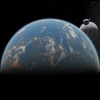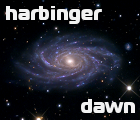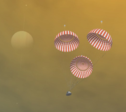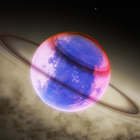|
Gaia launching soon
|
|
| Spyser | Date: Friday, 23.08.2013, 16:40 | Message # 1 |
|
Observer
Group: Users
 Sweden
Sweden
Messages: 11
Status: Offline
| Gaia has finally arrived at french guiana to be prepared for it's launch in justa few months according to this article: http://www.esa.int/Our_Act...._Guiana
To quickly summarise what Gaia is: It's a five year mission to map one billion stars in our galaxy. This as you know,will roughly equal to about 1% of all the stars in the galaxy. in addition to this it is going to map thousands of extra solar planets, and hundreds of thousands of asteriods.
I'm very excited about this mission, who knows what it will discover? Now when the Kepler telescope will have a difficult time finding new planets, the Gaia mission might be the best one to succeed it.
So what do you think about Gaia? What do you think it will discover? Will it change our understanding about the universe, and is it worth the cost? (stupid question, but still). and will space engineer have a good algorithm to include all these newly mapped stars and planets into Space Engine 
|
| |
| |
| SpaceEngineer | Date: Friday, 23.08.2013, 23:11 | Message # 2 |
 Author of Space Engine
Group: Administrators
 Russian Federation
Russian Federation
Messages: 4800
Status: Offline
| I'm very excited about this mission too. I wrote a short article about it on Russian forum a year ago (link). I like to call it is the mission of the century. It's scientific output is just mind blowing!
Discovering of new objects
- 1 billion stars down to 20m - coordinates, parallaxes (distances), proper motions, radial velocities and low-resolution spectra
- 200 million stars - measurement of radial velocities
- 100 million stars - getting the light curves
- 200,000 new white dwarfs and 50,000 new brown dwarfs (!)
- 500,000 small Solar system bodies with photometry and orbits
- 500,000 quasars with redshifts and photometry
- Measurement of masses of 10,000 stars with an accuracy of <1%
- 10,000 - 20,000 exoplanets within 200 pc (!!!)
Stellar Astrophysics
- Coordinate measurement accuracy (μas = micro arc second = 10-6 seconds of arc)
- 7 μas up to 10m
- 10-25 μas up to 15m
- 300 μas up to 20m
- HIPPARCOS for comparition: 1000 μas up to 12m
- Distance with 1% accuracy to about 10 million stars up to 2.5 kpc
- Distance with 10% accuracy to about 100 million stars up to 25 kpc (the diameter of the galaxy!)
- Massive numbers of rare types of stars and rapid evolutionary processes
- Parallax calibration for the distance indicators such as Cepheids and RR Lyrae stars in the LMC / SMC
- Sharp Hertzsprung-Russell diagram throughout the galaxy
- The Mass function and the Luminosity function of the solar neighborhood stars
- - including ~200,000 ~ white dwarfs and 50,000 brown dwarfs
- The Initial mass function and Luminosity function for the star-forming regions
- The Luminosity function for the Pre-Main-Sequence stars
- Detection and collection of data about stars of all spectral types and all types of galactic population
- Detection and investigation of variability of stars of all spectral types
- Distribution of distances and velocities of all stellar populations in the Galaxy
- Spatial and dynamic structure of the disk and halo of the Galaxy
- Formation history of the Galaxy
- Huge statistics - a strict basis for the theory of stellar structure and evolution
Exoplanets
- At least 70 measurements of coordinate for 100,000 stars of F, G, K types up to 200 pc
- Detection of 10,000 - 20,000 exoplanets with astrometric method (~ 10 per day!)
- Detection of ~5000 exoplanets by transit method (!)
- Orbits of detected planets for ~5000 systems
- Detection limits:
~ 1 Jupiter mass with a period of <10 years within 200 pc
~ 10 Earth masses within 10 pc
- Complete catalog of all the planets with a period of 2-9 years for all types of stars (!)
- True masses of the planets, not the lower limit of the mass (M, not M*sin(i))
- Relative inclinations of the orbits in multiplanetary systems
- Refinement of parameters of Kepler exoplanets and candidates - thanks to refinement of stellar parameters
Asteroids
- Deep (up to 20m) and uniform whole sky survey and detection of moving objects
- 105-106 of new objects (only 340,000 are known for now!)
- Study of change of taxonomy/mineralogical composition with heliocentric distance
- Diameters for ~1000 objects, masses for ~100 objects
- Orbits - 30 times better than present, even after 100 years
- Trojan asteroids for Mars, Earth and Venus
- Kuiper Belt Objects: ~ 300 up to 20m (including binaries and Plutinos)
- Near-Earth objects - Cupids, Apollos and Athenas (currently known - 1775, 2020 and 336 respectively)
- ~1600 crossing Earth orbit asteroids with diameter > 1 km (currently known - 100)
Confirmation of the General Relativity
- Gravitational deflection of light in the gravitational field of the planets
- Precession of the perihelion of asteroids orbits
- Astrometric fluctuations of satellites of known stellar black holes

|
| |
| |
| HarbingerDawn | Date: Friday, 23.08.2013, 23:39 | Message # 3 |
 Cosmic Curator
Group: Administrators
 United States
United States
Messages: 8717
Status: Offline
| I have been waiting for this mission to happen for YEARS! If something goes wrong with it I will be very very sad 
Just imagine what SE catalogs will be like in the year 2020 after Gaia is done... over 1 billion stars and tens of thousands of extrasolar planets. It will take all day to load! 
All forum users, please read this!
My SE mods and addons
Phenom II X6 1090T 3.2 GHz, 16 GB DDR3 RAM, GTX 970 3584 MB VRAM
|
| |
| |
| SpaceEngineer | Date: Saturday, 24.08.2013, 09:01 | Message # 4 |
 Author of Space Engine
Group: Administrators
 Russian Federation
Russian Federation
Messages: 4800
Status: Offline
| Quote (HarbingerDawn) It will take all day to load!
No, SE will load data from the disk by small chunks, like planetary textures. Or maybe computers in future will easy handle entire catalog in the memory 

|
| |
| |
| Spyser | Date: Saturday, 24.08.2013, 09:47 | Message # 5 |
|
Observer
Group: Users
 Sweden
Sweden
Messages: 11
Status: Offline
| Awesome to hear that it can be included in SE. 5-7 years from now our view of the universe might be so different from what it is now that we maybe will not even be able to comprehend it. In addition to what the expected discoveries are, who knows what unexpected and unknown phenomena we will find and all the implications that might have for astronomy and physics. Amon g those 100 000 thousand exoplanets, even if the majority will be gas giants, a huge amount ought to be within the habitable zone and be able to support life. If there are more planets in the Centauri systems, Gaia will most likely be able to find them, if one of them is life bearing (or any other planets in nearby system) a space organization might be willing to fund the development and launch of a probe to explore these planets within the century.
|
| |
| |
| Billy_Mayes | Date: Saturday, 24.08.2013, 12:47 | Message # 6 |
 Pioneer
Group: Users
 Finland
Finland
Messages: 485
Status: Offline
| Man, I'm so excited for this, this is really awesome.
AMD Phenom II X4 955 3.2 GHz Quad-Core - AMD Radeon HD 6950 2GB VRAM - 4GB RAM - 1680x1050 75 Hz Samsung screen
|
| |
| |
| NovaSilisko | Date: Saturday, 24.08.2013, 22:29 | Message # 7 |
 Explorer
Group: SE team
 United States
United States
Messages: 288
Status: Offline
| don't blow up don't blow up don't blow up
|
| |
| |
| HarbingerDawn | Date: Sunday, 25.08.2013, 00:26 | Message # 8 |
 Cosmic Curator
Group: Administrators
 United States
United States
Messages: 8717
Status: Offline
| Quote (NovaSilisko) don't blow up don't blow up don't blow up
That was me in a nutshell during the MSL launch. I'm probably going to be twice as nervous about Gaia 
All forum users, please read this!
My SE mods and addons
Phenom II X6 1090T 3.2 GHz, 16 GB DDR3 RAM, GTX 970 3584 MB VRAM
|
| |
| |
| RockoRocks | Date: Wednesday, 28.08.2013, 19:06 | Message # 9 |
 World Builder
Group: Users
 Belgium
Belgium
Messages: 674
Status: Offline
| This is really really really awesome!! I was a little sad since Kepler stopped working, but now we'll discover more exoplanets anyways. I can't wait to add planets it discovers to Space Engine! In addition, since Kepler's mission is likely over, I consider adding all planets it has discovered that aren't already in Space Engine (such as Kepler-37 b and c) into a catalog file. There aren't many, but I can't bear Space Engine being incomplete.

I will be inactive on this forum for the time being. Might come back eventually
AMD AR-3305M APU w/ Radeon HD 1.90 GHz 6,00 GB RAM
Edited by RockoRocks - Wednesday, 28.08.2013, 19:16 |
| |
| |
| Destructor1701 | Date: Thursday, 29.08.2013, 02:59 | Message # 10 |
|
Pioneer
Group: Users
 Ireland
Ireland
Messages: 533
Status: Offline
| Kepler's mission may be over, but we've barely made a dent in it's data.

|
| |
| |
| SpaceEngineer | Date: Thursday, 29.08.2013, 09:16 | Message # 11 |
 Author of Space Engine
Group: Administrators
 Russian Federation
Russian Federation
Messages: 4800
Status: Offline
| Quote (RockoRocks) In addition, since Kepler's mission is likely over, I consider adding all planets it has discovered that aren't already in Space Engine (such as Kepler-37 b and c) into a catalog file. There aren't many, but I can't bear Space Engine being incomplete.
I'm currently working on updating the exoplanets catalog. So this is unnecessary.

|
| |
| |
| Spyro | Date: Sunday, 01.09.2013, 20:36 | Message # 12 |
 Explorer
Group: Users
 United States
United States
Messages: 162
Status: Offline
| The frustrating thing is that I live all the way in Maine, far from any launch center, and can never seem to find the times for the launch livestream of ANY rocket. I would have watched Dragon's second transfer to the ISS, but I couldn't find any times in hours. 
Anybody know the planned launch time for Gaia so I can write it down? 
I'm back, but am I here to stay? Hopefully!
|
| |
| |
| HarbingerDawn | Date: Sunday, 01.09.2013, 20:52 | Message # 13 |
 Cosmic Curator
Group: Administrators
 United States
United States
Messages: 8717
Status: Offline
| Quote (Spyro) The frustrating thing is that I live all the way in Maine, far from any launch center
I live in Massachusetts, just as far from any launch center as you do...
Quote (Spyro) I would have watched Dragon's second transfer to the ISS, but I couldn't find any times in hours.
The only way that is remotely possible is if you unplugged yourself from the internet for a few weeks before the launch, because they spam that kind of information all over the place. It is impossible to miss if you look for it.
I even constantly post information about all SpaceX missions when they're happening in this thread 
Quote (Spyro) Anybody know the planned launch time for Gaia so I can write it down?
0857 GMT (3:57 a.m. EST), November 20, assuming nothing changes between now and then. I'm sure that links to streams and whatnot will be posted here when the launch approaches.
All forum users, please read this!
My SE mods and addons
Phenom II X6 1090T 3.2 GHz, 16 GB DDR3 RAM, GTX 970 3584 MB VRAM
Edited by HarbingerDawn - Sunday, 01.09.2013, 21:04 |
| |
| |
| Spyro | Date: Monday, 02.09.2013, 00:24 | Message # 14 |
 Explorer
Group: Users
 United States
United States
Messages: 162
Status: Offline
| Thanks for the info on Gaia!
Quote (Harbingerdawn) The only way that is remotely possible is if you unplugged yourself from the internet for a few weeks before the launch, because they spam that kind of information all over the place. It is impossible to miss if you look for it.
I did look for it. And I think I did unplug myself from the internet, all the way up in Central Maine with my grandparents again. However, I did get back in time to see the launch, but I still couldn't find ANYTHING. No wonder I still don't understand every corner of copyright law.
Random Note: Labor day is my birthday!
I'm back, but am I here to stay? Hopefully!
|
| |
| |
| HarbingerDawn | Date: Monday, 02.09.2013, 00:29 | Message # 15 |
 Cosmic Curator
Group: Administrators
 United States
United States
Messages: 8717
Status: Offline
| Quote (Spyro) No wonder I still don't understand every corner of copyright law.
What does any of this have to do with copyright law?
All forum users, please read this!
My SE mods and addons
Phenom II X6 1090T 3.2 GHz, 16 GB DDR3 RAM, GTX 970 3584 MB VRAM
|
| |
| |